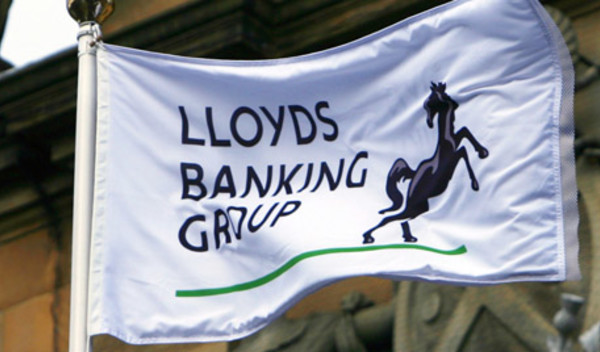

For the first time since the economic crisis, Lloyds Banking Group is set to pay dividends, as the group reports that underlying profit is up by a quarter.
Lloyds’s annual results, published today (27 February), revealed the board has recommended a dividend of 0.75 pence per ordinary share in respect of 2014, amounting to £535m.
The group’s aim is to have a “progressive dividend policy”, with dividends starting at a modest level and increasing over the medium term to a dividend payout ratio of at least 50 per cent of sustainable earnings.
Subject to performance, the intention is to pay an interim and final dividend for 2015.
On a statutory basis, the group reported a profit before tax of £1.76bn, compared to £415m in 2013. This was after £2.2bn of charges in respect of payment protection insurance - down from £3.05bn in 2013 - while other regulatory provisions were up to £925m from £405m the previous year.
The report also revealed underlying profit up 26 per cent to £7.8bn, while costs were reduced by 2 per cent to £9.4bn.
The retail division provided £11.9bn of mortgage lending to over 89,000 first-time buyers during 2014, with total gross mortgage lending of £40bn, 13 per cent higher than the prior year.
The lender also claimed to be the largest participant in the Help to Buy mortgage guarantee, lending £1.9bn through this scheme in the year.
The results also revealed that Lloyds is still feeling the impact of the costs and reduction in income related to the sale of its 21 per cent stake St James’s Place in 2013, with overall group income of £18.4bn, up only 1 per cent excluding the effects of the disposal.
The bank’s results for last year showed that other income, excluding the St James’s Place effect, was 9 per cent lower, reflecting business disposals and a “challenging operating environment”.
In July 2014, the group announced that it had reached settlements totalling £217m with the UK Financial Conduct Authority, the United States Commodity Futures Trading Commission and the United States Department of Justice regarding the manipulation of interbank rates, the associated systems and control failings.
In addition to these regulatory settlements, it paid nearly £8m to the Bank of England to compensate for fees that were underpaid as a direct consequence of the manipulation of the Sterling Repo Rate in 2008 and 2009.
Further provisions of £150m have been made relating to the past sale of interest rate hedging products to certain small and medium-sized businesses, of which £100m was recognised in the fourth quarter.
The further provision brings the total amount provided for redress and related administration costs for customers in scope of the agreement with the FCA to £680m, of which £109m was unutilised at the end of the year.
peter.walker@ft.com



